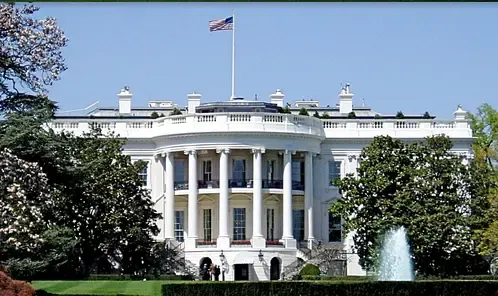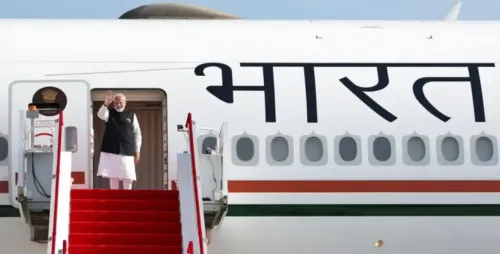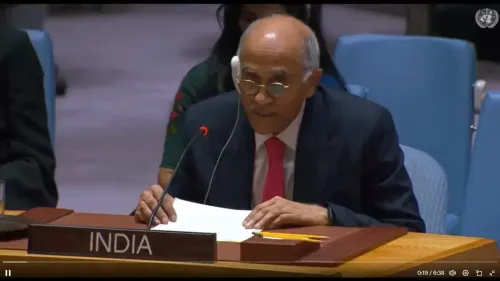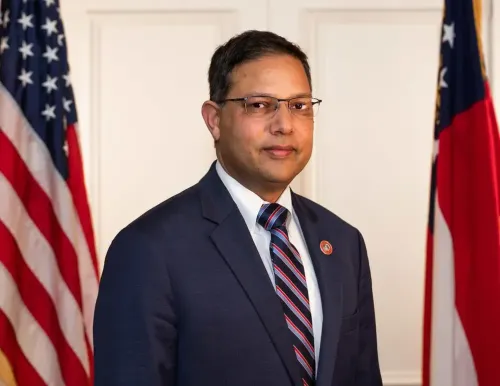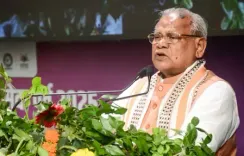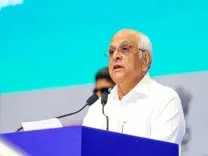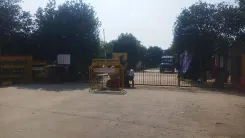Trump's Reciprocal Tariffs: A Bid for Historical Legacy
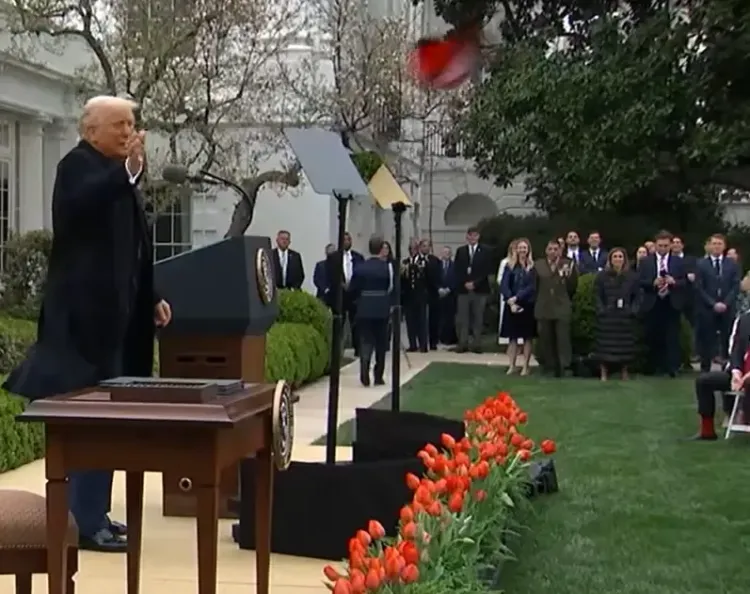
Synopsis
Key Takeaways
- Reciprocal tariffs announced by Trump aim to revive American manufacturing.
- Trump claims trillions in investments will flow into the US economy.
- He emphasizes the need to reclaim America's destiny.
- Auto workers are highlighted as key beneficiaries of his policies.
- Trump criticizes foreign nations for stealing American jobs.
New York, April 4 (NationPress) Beyond the trillions of dollars and the thousands of jobs that he anticipates from the reciprocal tariffs he announced, US President Donald Trump is striving for a significant place in history as the leader who restored the nation’s destiny.
"My fellow Americans, this is Liberation Day, a long-awaited moment. April 2, 2025, will be etched in history as the day American industry was revitalized, the day America reclaimed its destiny," Trump proclaimed on Wednesday during his global-reaching announcement.
The event, held in the Rose Garden at the White House—his inaugural address at this location—resembled a rally, filled with the theatricality of campaign events that drew crowds, blending hope, confidence, and a substantial dose of grievances.
Trump articulated his vision in terms of trillions—the trillions he claimed were taken from the US via tariffs by others, incoming trillions in investments, and "trillions and trillions of dollars" from tariffs intended to lower taxes and decrease the national debt.
In line with his campaign slogan, he stated, "With today’s action, we will finally be able to make America great again, greater than ever before."
He prominently featured a group of auto workers, asserting that he aims to assist them through his tariffs by revitalizing manufacturing.
Trump tossed a red hat to the autoworkers, some donning work helmets, quipping that his cabinet had too many hats.
He invited one of the workers, Brian Pannebecker, the head of a group called Auto Workers for Trump, on stage to endorse his tariff policy, claiming he "understands this business far better than any economist."
Addressing the skepticism of economists regarding the swift return of manufacturing, Pannebecker noted that he had witnessed numerous plants close and asserted that Trump’s "policies will bring production back to those underutilized plants."
During his rallies, Trump criticized two of his preferred targets, his predecessor, Joe Biden, and the mainstream media.
"We were thriving, and nobody could catch us, but so much of it slipped away over the last four years under Biden," he claimed.
"Fake news will always complain" and fail to recognize his efforts, Trump remarked.
In a further jab at the media, he noted that they did not want him to succeed but added, "What they don’t realize is if I hadn’t won, they would have been in serious trouble because nobody wants to read them anyway," referencing the increase in newspaper circulation during his first term.
However, his most significant grievances that day were directed at the global stage—the "foreign scavengers (who) have dismantled our once-beautiful American dream."
"For decades, our country has been looted, pillaged, raped, and plundered by nations both near and far, friends and foes alike," he lamented.
"American steel workers, auto workers, farmers, and skilled craftsmen," he declared, "have watched in despair as foreign leaders have seized our jobs. Foreign cheaters have ravaged our factories."
His discontent with predecessors extended back to the early 20th century when he claimed the US abandoned tariffs and instituted income tax, allowing leaders to facilitate the nation’s deindustrialization.

